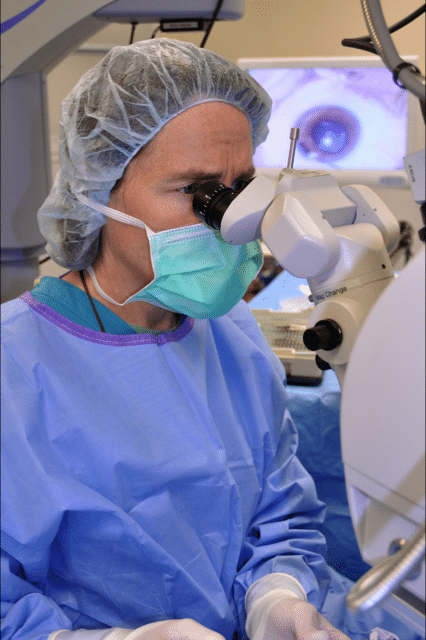#EyeGetDilated: Be Smart. Beat It.

Guest blog post by Carol L. Shields, MD:
Ocular melanoma is a serious disease. This malignancy can be life-threatening. It tends to occur in middle-aged, Caucasian people, particularly those with light colored irises such as blue or green. Don’t let melanoma catch you. Beat it.
How can you beat it? Get your eyes dilated once a year for life. Detection of melanoma when it is small is important as life prognosis is far better. It should be known that about 10% of Caucasians in the United States have a choroidal nevus and this could be a precursor to melanoma. Any patient who has different colored iris should be checked twice yearly, as this too could be a precursor to melanoma. If there is a family history of other cancers like renal cell carcinoma, mesothelioma, or others, you should have your eyes checked as uveal melanoma can occur also with these other malignancies under the umbrella syndrome called BAP 1 cancer predisposition syndrome.
An annual dilated eye examination should be a part of your general physical examination. Your medical doctor will not be able to see all the parts of the eye and you need to see your eye doctor to have a full examination. Eye melanoma is best detected with a dilated examination. See your local ophthalmologist annually.
Here are 5 quick facts on ocular melanoma:
1. Eye melanoma is deadly.
2. Melanoma can occur without symptoms so you may not know that you even have a problem.
3. Your environment and what you eat, breathe, smoke, drink, or do is not related to the development of eye melanoma.
4. Eye melanoma can be cured if caught early enough and if it does not show genetic mutation.
5. Be smart, beat it.
Dr. Shields is the Director of Oncology Service at Wills Eye Hospital in Philadelphia, Pennsylvania and a member of the CURE OM Scientific Steering Committee. The MRF’s CURE OM initiative is dedicated to increasing OM awareness and advancing scientific progress towards better treatments and, one day, a cure for ocular melanoma. To support this important work, please consider a tax-deductible donation today:



